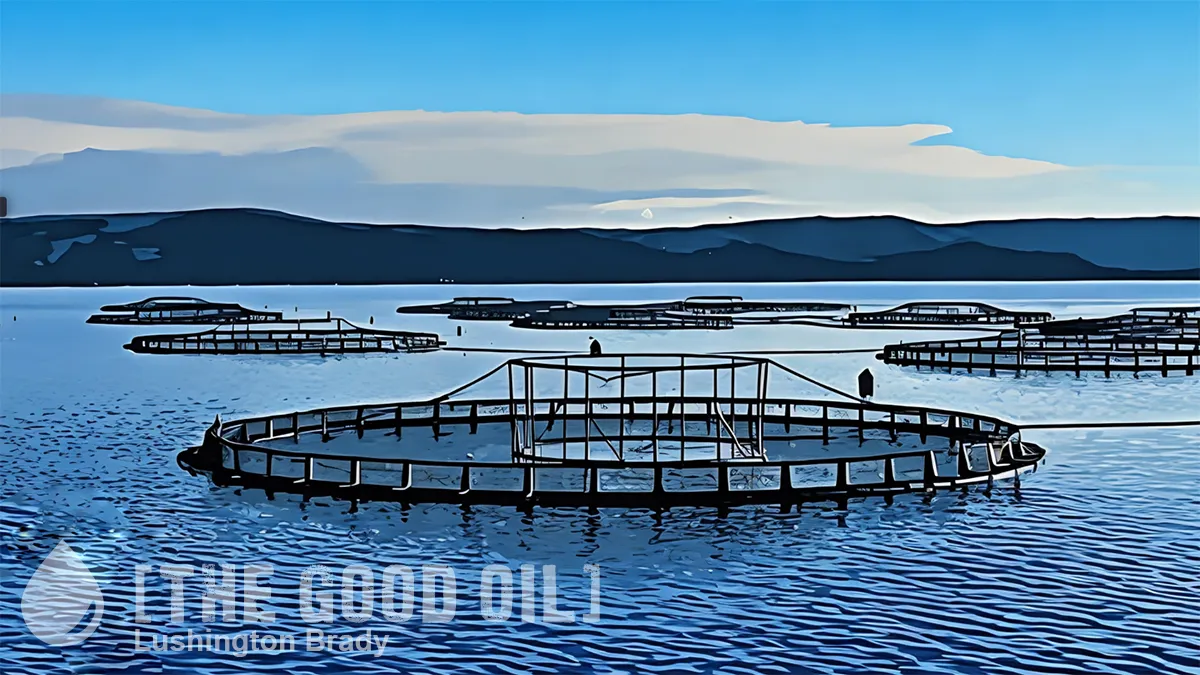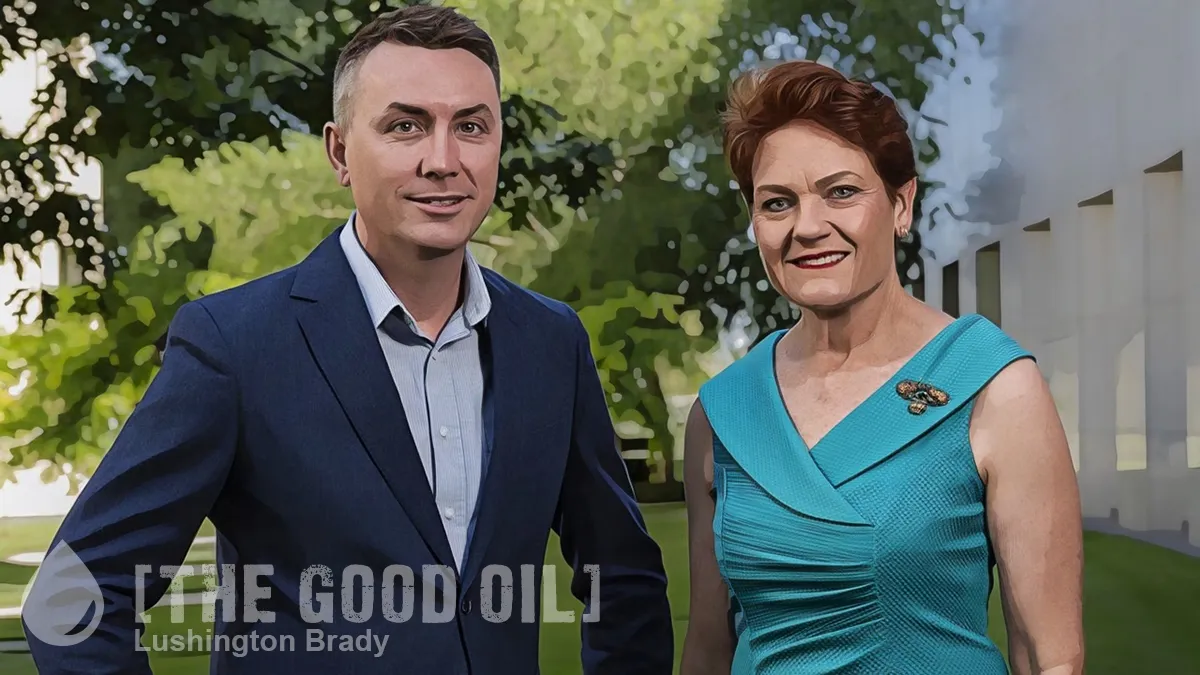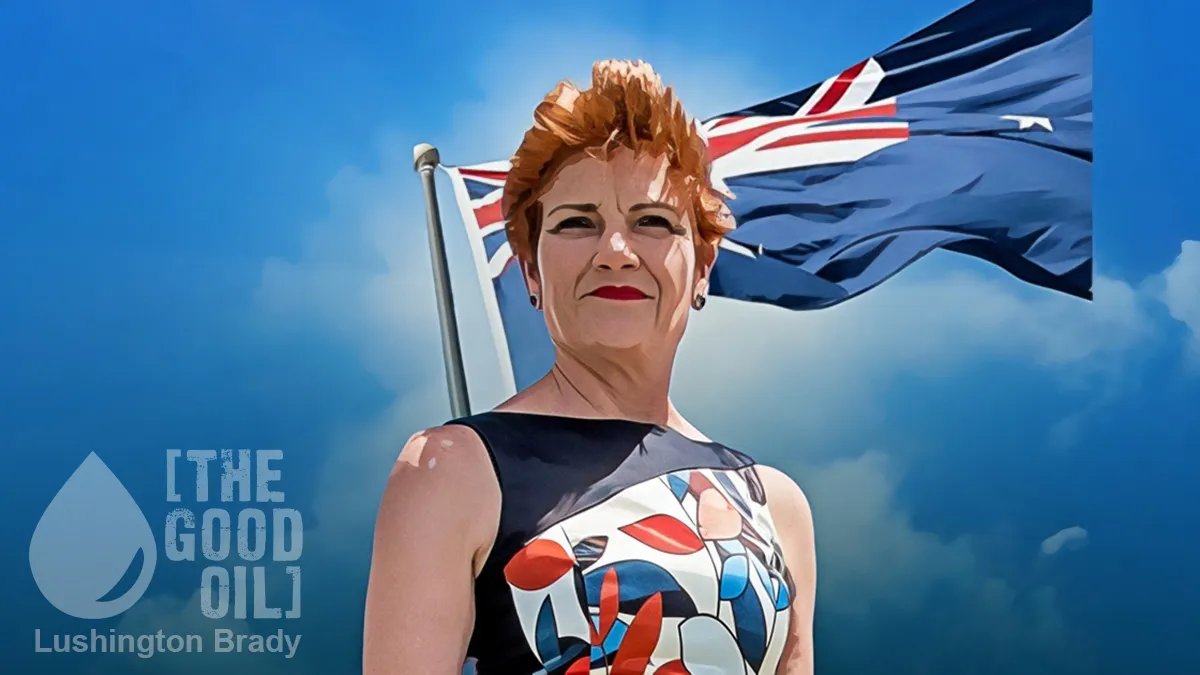Table of Contents
How do you know an industry is booming in Tasmania? The greens campaign to shut it down.
You certainly have to feel sorry for the people of Strahan. Once again, their tiny little town of just 600-odd people is being made the punching bag of mainland politics. In the early ’80s, it was the site of months of protests against a planned dam project. The protests launched the career of Bob Brown, gave birth to the Tasmanian Greens and created rifts in the community that persist. To this day, there are people in the town who won’t talk to each other.
It’s happening again.
At issue this time is the town’s – and the state’s – booming aquaculture industry. Once again, a cabal of mainland activists, grubby politicians and chattering class elites are coalescing to shut down one of the few productive industries in the state.
All because of a glorified stingray.
The Greens are devising an election strategy to wedge Labor on salmon in seats nationally, as Anthony Albanese flies to a small Tasmanian town in a “risky” move to placate aquaculture workers.
The Prime Minister’s expected visit to Strahan in the key swing seat of Braddon on Saturday – to tour salmon pens on Macquarie Harbour and attend a Christmas BBQ – delivers on a promise to front locals before a decision is made on fish farms in the western waterway.
Environment Minister Tanya Plibersek is reconsidering 2012 environmental approval for aquaculture in the harbour after concerns – backed by scientific advice – that low water oxygen levels partly linked to fish farms are having a “catastrophic” impact on the endangered Maugean skate.
The bigger picture is, once again, federal politics. The Albanese government is headed for an electoral humiliation and knows it. Every seat they can get is vital. PM Anthony Albanese is desperate not to let opposition leader Peter Dutton repeat John Howard’s triumphant gazumping of Labor on its own turf – workers and unions. When Howard promised, in the 2004 election campaign, to throw a lifeline to the state’s forestry workers, it was a political masterstroke.
So, how’s Albanese’s intervention working out for Labor, this time.
Amid rising anger over Tasmania’s salmon standoff, polling shows the Liberals easily retaining two marginal federal seats in the state but a bold candidate switch helping to save another for Labor.
Polling obtained by The Weekend Australian shows the Liberals retaining the northwest seat of Braddon – at the heart of the salmon controversy – and Launceston-based Bass.
Both results are a blow to the ALP, which has particularly fancied its prospects of regaining Braddon, following the retirement of popular sitting MP Gavin Pearce, and the switch of Labor senator Anne Urquhart to the lower house race.
In the third seat, Lyons, Labor’s Brian Mitchell has proven to be a popular, capable local member. But Mitchell is retiring before the election. His replacement is crucial and Labor have pinged former state Labor leader Rebecca White. Despite losing three state elections on the trot, White is generally well liked in Tasmania.
The polling, conducted for industry groups, suggests the switch from Mr Mitchell, who won Lyons in 2016 and held it in 2019 and 2022, to Ms White, is paying off.
When voters in the electorate were asked for voting intention without naming the candidate, the results were: Labor 34 per cent; Liberal 31; Greens 11; independent 7; Jacqui Lambie Network 4.
But the coalition senses blood in the water over the salmon issue. Peter Dutton will be visiting Lyons this week, to try and maximise local unrest. That unrest is fuelled by a sense that, yet again, well-off mainlanders are using Tasmanian jobs as their political plaything.
Critics have blamed the recent Tasmanian salmon farming standoff on an “archaic” legal loophole, which they claim is allowing internationally funded shareholder activists to influence the economic and environmental fabric of Australia, destroying companies and potentially affecting national sovereignty in the process […]
The Sustainable Investment Exchange, or SIX, played a major role in using its stakeholder leverage to push anti-salmon farming resolutions on behalf of a small number of shareholders […]
Salmon Tasmania chief executive Luke Martin said activists were “always looking to intimidate, mislead, and destroy livelihoods”.
This is just a rinse-and-repeat experience for Tasmanian workers.
In 2017, a local company planned to lease a ‘super trawler’ to fish plentiful jack mackerel. When I interviewed the CEO at the time, he emphasised that the company had gone above and beyond in addressing environmental concerns. Environmental groups were satisfied: all seemed well.
Then Greenpeace got involved. Always on the lookout for a new campaign to boost their profile – and donations – Greenpeace mounted a spurious but successful social media campaign. Sensing an opportunity too good to pass up, other environmental groups jumped on the bandwagon.
And another potential Tasmanian industry was dead in the water.









